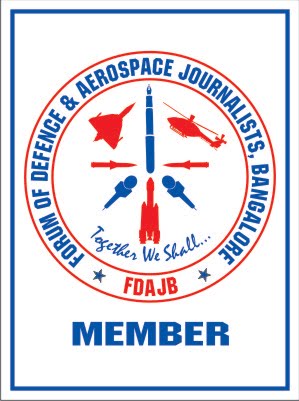The Indian Air Force in the 1971 Liberation War by PVS Jagan Mohan and Samir Chopra is a chronicle of Indian Air Force’s effort in the 1971 war. Unravelling the events that influenced the development of the Indian and Pakistan air forces in the years leading up to the war, to the operations conducted on the very first day of the air war on 4 December 1971 with raids on ‘Dacca’, and the final coup de grace delivered on the Governor’s House, the chapters in the book leave the reader in awe at the challenges confronting the forces and the circumstances revolving around those days.
Having only briefly touched upon the political background of the war, the authors have done justice to subject by focusing on the crux of their narrative, which is indeed a brilliant reflection of their strong understanding of the history.
Their narrative, which according to the authors, relies on a day-today recounting of activities, is gripping and transports the reader to the battleground. Their account has been enriched by first-person descriptions from IAF pilots as well as rare photos, which add to the entire ‘experience’ of the book.
Chapter six of book, Back to the Airfields is particularly noteworthy and takes the reader into the war and its moments in such realism that it hardly leaves any room for ‘insufficient’ material. The pictures in the chapter just increases the pace of the events.
Some of the events that unfolded during the war seem to be a first. Noteworthy among them and a matter of pride, was after the signing of the Instrument of Surrender in ‘Dacca’. The book narrates, ‘The Instrument of Surrender was signed at 4.55 pm at the Race Course Grounds. The entire event lasted fifteen minutes. The IAF was represented by Air Marshal Dewan, his Air 1 Group Captain SK Mehra and Group Captain Chandan Singh. After the signing, Air Marshal Dewan asked General Niazi why he had surrendered though he had the troops to hold out longer. Niazi, pointing to the pilot wings on Group Captain Chandan Singh’s chest, said, “This has hastened the surrender. I and my people have had no rest during day or night, thanks to your Air Force. We have changed our quarters ever so often, trying to find a safe place for a little rest and sleep so that we could carry on the fight, but we have been unable to do that.’”
A main highlight of the account is that unlike other war novels, the narration has been very focused, crisp and not exaggerated. It keeps its pace and never lets the reader feel that the authors are trying to add some ‘masala’ into their narration. This makes the account realistic and the simple language used without any tough English jargons makes it worth a read.
A matter of honour indeed, Eagles over Bangladesh is definitely one that should find a place of esteem in your shelf.
Copyright@The New Indian Express






















